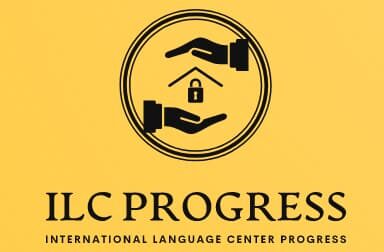An interpreter is a highly sought-after profession that allows you to earn a decent living. Professionals in this field move up the career ladder gradually. Most of them have to change jobs often. As their translation skills improve, their income grows. Competition for such positions in large companies is always high. In a reputable firm working with foreign partners, it is unlikely to take someone who just graduated from the linguistics department. In such cases, priority is given to professionals with experience. Many translators start their career by working in schools as foreign language teachers. In public schools the salary is small, in private lyceums and colleges it is much higher. As you gain experience, you can expect to get a position in large companies where the salary is several times higher.
Industries in which interpreters can find work
The interpreter profession is in demand in a variety of industries. The most common option is public institutions, we are talking about schools, colleges, universities. A person with a degree in linguistics can work not only as a teacher. Most seek employment in international companies. This is the most lucrative industry. Full-time translators earn good money, their main activity is related to negotiating with international partners.
Translation of documents pays well. Literacy is important for the success of such work. An interpreter must be fluent in two languages simultaneously – a native language and a foreign language.
Many translators are working on a freelance basis, with decent money. Some are working with regular customers, and some are constantly looking for new ones. Income in this case, unstable, because you have to look for orders on their own.
Many translators moonlight as tutors.
People who are good at different languages are rarely out of work.
Specializations for translators
There are several specializations for translators, let’s list the most common:
- technical translation;
- legal translation;
- medical translation.
Each of these specializations pays differently. A translator must be proficient in professional terminology. Some specialize in fiction translation, some in business translation. To get acquainted with a particular field, one has to study specialized literature and use dictionaries.

Translation can be written or oral. Interpretation, in turn, is divided into consecutive and simultaneous. Services of synchronized interpreters are the most expensive. To successfully cope with such a task requires a high level of professionalism.
Interpreters-simultaneous interpreters are usually invited to large-scale events, for example international conferences, court hearings with the participation of foreign citizens. In some cases interpretation by ear is required, in others interpretation “from the page”.
Consecutive interpreters are invited to relatively small events, such as business negotiations and seminars. They act as attendants for foreign delegations. The difficulty of such work is that when translating it is important not to miss any important details.
Skills needed for a good interpreter
A good interpreter must have several skills at once. The main one is knowledge of different languages. A translator must understand specialized terminology. It is important to mention that even experienced specialists occasionally turn to dictionaries. Knowledge of software is also required, especially for translators who work in large companies. In this profession is difficult to do without communication skills. Skilled professionals are highly trained in professional ethics.
Because interpreters routinely interact with large numbers of people, including important personalities, they require strong communication skills.
When working for a company, it is important to be able to blend in with the team and find a common language with other employees.
Becoming a qualified and in-demand translator is difficult without a developed intellect and a desire to continuously improve in the profession.
How do I find a job as a translator?
Translators look for work the same way as representatives of other professions – by browsing ads on specialized sites. Vacancies are often posted on language forums.
Another place where you can find a job – freelance exchanges. Many vacancies provide for the possibility of remote work.
Large firms are looking mainly for specialists with experience, putting forward a number of requirements. But if you want, you can always find jobs for young linguists and students.
There are sites through which you can find work abroad.
Professionalism in the field of translation is in the first place. One of the advantages of this profession is variety. Translators often go on business trips, which allows them to combine work with travel. Schedule of work in this specialty is relatively free, which can also be considered a plus. Interpreters’ income depends a lot on themselves, their diligence and level of professionalism.
